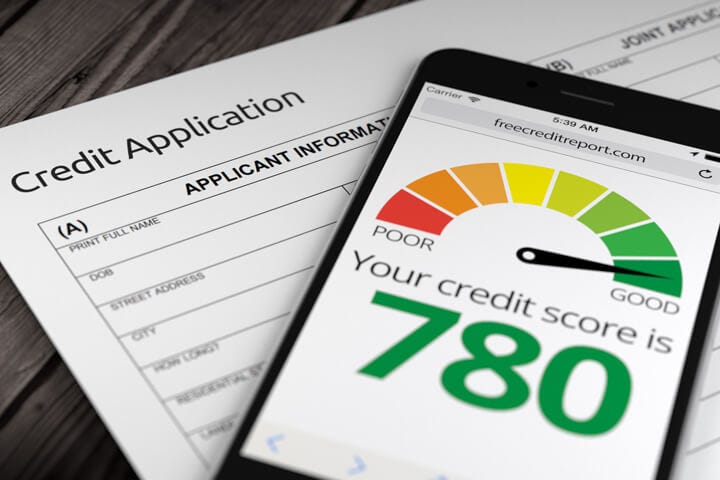If you’ve ever wondered why lenders approve or deny your application, it usually traces back to one number: your credit score. Whether you want a home loan, a new car, or a better credit card, a good credit score opens doors and saves you money. But what if yours needs work—or you want to get it up quickly? You’re in the right place. This practical, easy-to-follow guide will help you understand everything about credit scores and teach you exactly how to boost yours fast.
What Is a Credit Score and Why Is It Important?
A credit score is a three-digit number typically ranging from 300 to 850. It’s calculated using your credit history, payment habits, amounts owed, and more. Lenders use this score to gauge how likely you are to repay debts on time.
A higher score means better credit offers, lower interest rates, and more financial options. In contrast, a low score can make borrowing expensive—or even impossible. No matter your goals, knowing your credit score and how to improve it gives you true financial control.
How Credit Scores Are Calculated
Understanding what makes up a credit score is the first step toward raising it. Here’s a breakdown of the five major components, using the FICO scoring model:
- Payment History (35%): Paying bills on time has the biggest impact.
- Amounts Owed (30%): How much you’re using of your available credit (credit utilization).
- Length of Credit History (15%): The average age of your accounts.
- New Credit (10%): Recent applications for new accounts.
- Credit Mix (10%): Types of credit (credit cards, loans, etc.).
Knowing these factors helps you target the healthiest credit behaviors.
The Different Types of Credit Scores
While “credit score” often refers to FICO, there are actually many types. The most common are:
- FICO Score: Used by most lenders, ranges from 300 to 850.
- VantageScore: Another popular model, similar range.
Both scores depend on similar factors, so strategies to boost your score usually work across the board.
How to Check Your Credit Score
Before improving your score, you need to know where you stand. Most major banks and credit card companies now offer free credit scores to customers. You can also access your credit reports from major bureaus (Experian, Equifax, TransUnion) once a year for free.
Review your reports for errors, fraud, or outdated information. Correcting any mistakes is often one of the fastest ways to give your score a bump.
The Fastest Ways to Increase Your Credit Score
Ready for results? Here are proven steps to boost your credit score fast, with clear, actionable tips for every stage.
1. Pay Your Bills on Time, Every Time
On-time payments are the single most important factor. Even one missed payment can hurt your score. Set up reminders, enable automatic payments, or use budgeting apps to ensure you never miss a due date.
2. Reduce Your Credit Card Balances
Your credit utilization ratio—the amount you owe versus your credit limits—should ideally stay below 30%. For the biggest impact, aim for under 10%. Paying down balances is one of the quickest paths to improvement.
3. Increase Your Credit Limits
Sometimes, getting approved for a higher credit limit—without raising your spending—lowers your utilization ratio. Request an increase from your credit card issuer (especially if your income or credit has improved). Just make sure not to rack up additional debt.
4. Don’t Close Old Credit Accounts
Length of credit history matters. Closing your oldest accounts can shorten your average account age and ding your score. Keep old, well-managed accounts open, even if you use them rarely.
5. Fix Credit Report Errors Promptly
Mistakes like outdated balances or incorrect late payments can drag scores down. Dispute any inaccuracies with the credit bureau. Many people see score increases within a month of fixing errors.
6. Limit New Credit Applications
Each hard inquiry (when a lender checks your credit for a new account) can drop your score a few points. Too many inquiries at once signal greater risk. Only apply for credit when needed and space out applications.
7. Diversify Your Credit Mix—But Only If Needed
Lenders like to see that you can manage different types of credit responsibly. If you only have credit cards, consider a small personal loan or secured loan. Don’t take on unnecessary debt just for variety—only explore this if it fits your financial situation.
8. Become an Authorized User
Ask a family member or trusted friend with a strong credit history to add you as an authorized user on their card. Their positive payment history could be added to your report, giving your score a quick boost.
9. Settle Past-Due Accounts
If you’ve fallen behind, bring all accounts current as soon as possible. If necessary, negotiate with creditors; many are willing to work out payment plans. Even partial payment arrangements show progress and can help your score rebound.
Myths and Misconceptions About Credit Scores
There’s a lot of misinformation when it comes to credit. Let’s clear some things up:
- Checking your own credit lowers your score: False. Soft inquiries (when you check your own score) have zero impact.
- You need to carry a balance to build credit: Not true. Pay off your full balance each month if possible.
- Paying off a loan early hurts your score: Wrong. Responsible repayment always helps in the long run.
Rely on facts, not myths, to guide your credit journey.
How Long Does Credit Repair Take?
Credit scores don’t jump overnight, but some actions take effect quickly—especially correcting errors or reducing utilization. Most people see results within a few months when following the right steps. Patience and consistency remain key. Stay committed, and you’ll keep moving toward your financial goals.
Boosting Your Score for a Major Purchase
If you’re preparing for a big financial milestone, like buying a home or car, timing your credit moves is crucial:
- Check your score months in advance.
- Address any negatives ASAP—late payments, collections, or high balances.
- Avoid opening several new accounts right before applying for a major loan.
Preparation makes all the difference when you want the lowest interest rates and best loan terms.
Maintaining a Good Credit Score for the Long Haul
After boosting your score, maintaining it is just as important. Practice these habits:
- Continue paying every bill on time.
- Keep credit card balances low.
- Monitor your credit report every few months.
Building and keeping good credit is a marathon, not a sprint. The payoff: lifelong access to better financial opportunities.
Frequently Asked Questions (FAQs)
1. How often should I check my credit score?
Check at least once a quarter—many services offer free monthly updates.
2. Can I build credit if I have no credit history?
Yes! Start with a secured credit card or become an authorized user on someone else’s account.
3. Does having multiple credit cards hurt my score?
Not inherently. Problems arise if you max them out or miss payments.
4. Will paying off collections improve my score?
Generally, yes—especially with new scoring models. Always aim to pay settled or past-due debts.
Conclusion
Your credit score is more than just a number; it’s a powerful tool that shapes your financial future. The good news? With the right actions, you can boost your score faster than you think. From paying bills on time to lowering your credit utilization, every smart move brings you closer to your goals. Make these habits part of your routine, and the rewards—better rates, easier approvals, and greater peace of mind—will follow.
Ready to take charge? Start applying these strategies today and watch your credit soar!
Take action now: Review your credit report, tackle high-impact changes, and begin your journey to excellent credit. Your future self will thank you!






